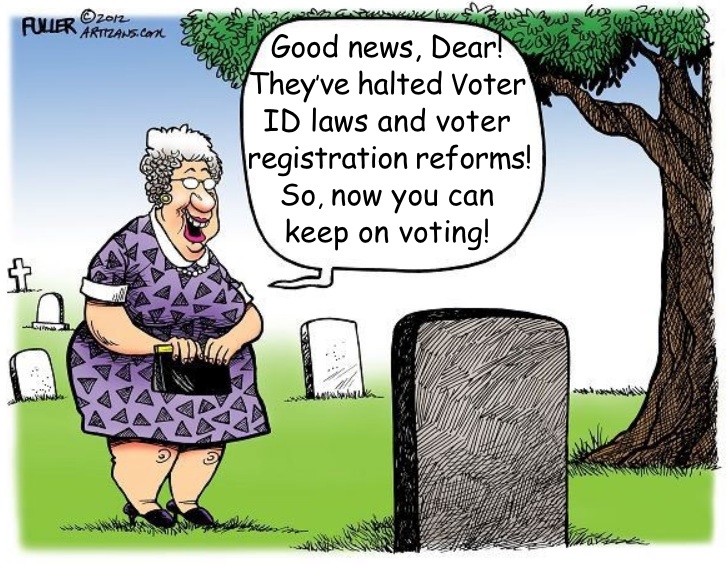By Angela Morabito • The Federalist
Study Finds Voter ID Requirements Don’t Repress Minority Votes
Voter ID requirements do not affect voter turnout, according to a new working paper published by the National Bureau of Economic Research. The researchers looked at 1.3 billion data points on U.S. voters from 2008 to 2013, and they found that “the laws have no negative effect on registration or turnout, overall or for any group defined by race, gender, age, or party affiliation.”
For years, opponents of voter ID laws have equated them with disenfranchisement. The American Civil Liberties Union says “voter ID laws deprive many voters of their right to vote” and that they “reduce participation.” Writing for CNN Politics, reporter Eric Bradner addressed voter ID requirements as “discriminatory voting laws.” The Democratic Party’s official website addresses voter ID laws as if they are anathema to democracy.
As it turns out, none of their fears about voter ID were backed up by this large study. This is great news: The country can now take obvious steps to protect the integrity of our elections, knowing that enacting voter ID laws will not disenfranchise anyone. In a fact-based political environment, everyone would celebrate this. Instead, don’t expect special interest groups to change their positions based on this new information.
The study found no difference in voter turnout for either primary or general elections based on voter ID laws. Whether the law required a photo ID or allowed something like a utility bill to suffice as identification, the outcome remained the same: turnout did not change for any demographic group.
This runs counter to what we have been told about voter ID––that such requirements discriminate against minorities and the poor, who are the least likely to have a government-issued photo ID. This presents a policy problem. How do we make sure that every eligible person is able to cast a ballot, while making sure that no one votes more than once or in a district where they do not live? States have already figured out a solution; they make voter ID cards free for those in need, and allow people other ways to verify who they are.
Of the eight states that require photo identification at the polls, all of them issue voter ID cards to their citizens free of charge. Of the 10 states that request photo identification, four issue ID cards at no cost. The other six allow voters without photo ID to cast their ballots so long as they verify their identity another way, like with a signature that matches the one on their registration.
Public support for voter ID requirements is high, with Rasmussen reporting that 67 percent of likely voters would support a requirement to show identification at the polls. However, this number has been declining steadily since 2010, when support for voter ID reached 82 percent. Arguments against voter ID are working, even if they are incorrect. Public opinion is changing, and it’s not changing based on facts.
Critics will be quick to point out that the voter ID study also found that ID requirements did not cut down significantly on fraud. However, researchers only looked at 2,068 instances of real or suspected fraud. That’s only 40 per state.
State and local governments set their own requirements for reporting voter fraud, and many of them are not very thorough. The researchers openly acknowledge that the data sets they worked with were not comprehensive in this respect. It is impossible to measure changes in voter fraud rates when reports of fraud are not being recorded consistently. This is not a reason to ignore voter fraud, but to track it, and use that data to inform future policy decisions. We don’t know what we don’t know.
What we do know is that anyone who is eligible to vote can do so, no matter the identification requirements. For years, politicians and special interest groups have told us that fewer people will vote when ID is required. In this study, American voters proved them wrong. Anyone who says voter ID laws decrease participation is factually incorrect––and they’re underestimating the American public’s commitment to participating in self-rule.
